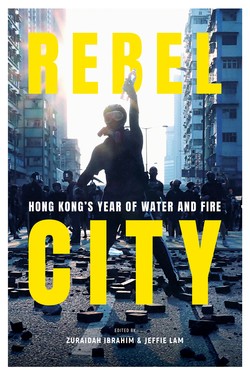Читать книгу Rebel City - South China Morning Post Team - Страница 40
На сайте Литреса книга снята с продажи.
On one mat, no matter how perilous
ОглавлениеJeffie Lam
As she dived into the sea of demonstrators, Anna Chan Wah shrugged off the scorching heat, the blaring loudspeakers and, in the pit of her stomach, a gnawing fear of failure.
“We know our street protest today is not going to change anything,” the sixth former said solemnly. “But we are here to fight for democracy in Hong Kong and to show that we still have a voice.”
That was back in 2003 and Chan was 18 when she joined the half a million people who poured onto the streets to oppose a piece of national security legislation the government had introduced. Chan feared the bill, which was to deal with treason and sedition against Beijing, would curb the freedoms and rights of Hongkongers guaranteed by the “one country, two systems” governing blueprint.
She was the first recruit of a new union of pupils against the legislation. She later co-founded the Hong Kong Secondary Students Union. “My mum asked me not to get involved and focus on my studies,” she said. “But we need to show our concern, not just through discussion but action.”
Chan kept her word. Long after the bill was aborted, she continued to attend democracy rallies, first as an undergraduate and then as a secondary school teacher.
On June 9, 2019, when an estimated 1 million people marched in protest against the extradition bill which would have allowed fugitives to be tried on the mainland, Chan was in the crowd. “Hongkongers might seem to care only about money most of the time but they would definitely stand up when their freedoms and core values are eroded,” said Chan, now 34 and mother of an eight-year-old son.
“That is the Hongkongers’ spirit. We have not changed.”
Protesters on that day wore white to symbolize the death knell of the city with the passing of the bill. They chanted “faan sung zung” again and again. A Cantonese phrase which means “oppose being sent to China,” it is in effect a pun that also means sending someone to their death. That double entendre summed up their fears over the bill.
Like Chan in 2003, many admitted feeling pessimistic about their chances of quashing the legislation. But they were not giving up without a fight. As Hongkongers, taking to the streets to send a message was a freedom they intended to use to the fullest, many of the marchers said, as they explained why they were spending seven to eight hours that Sunday on the streets. Protesting was what being a Hongkonger was about, commentators mused aloud in those early days of the cause. The protest instinct was in city residents’ DNA, others said.
